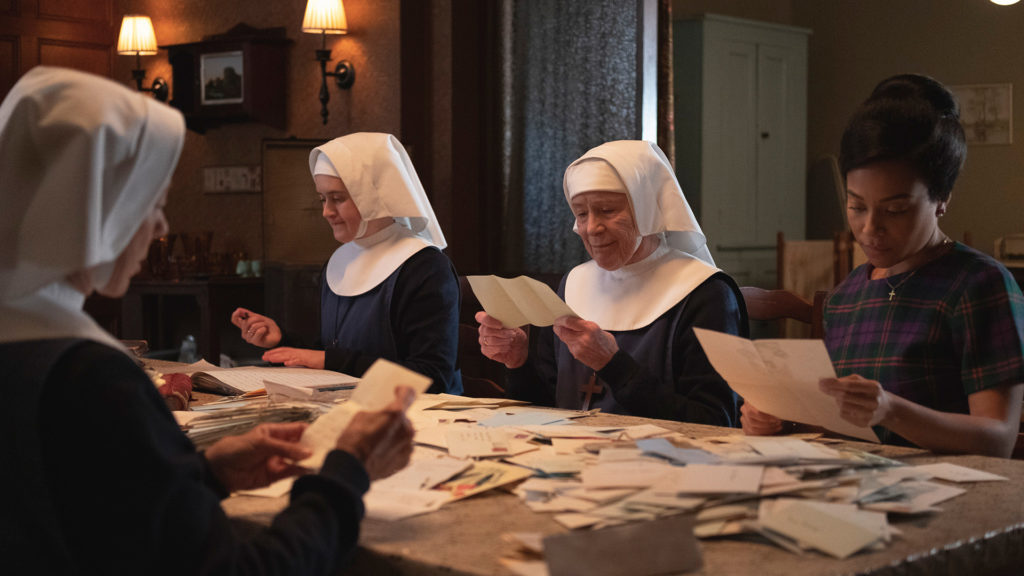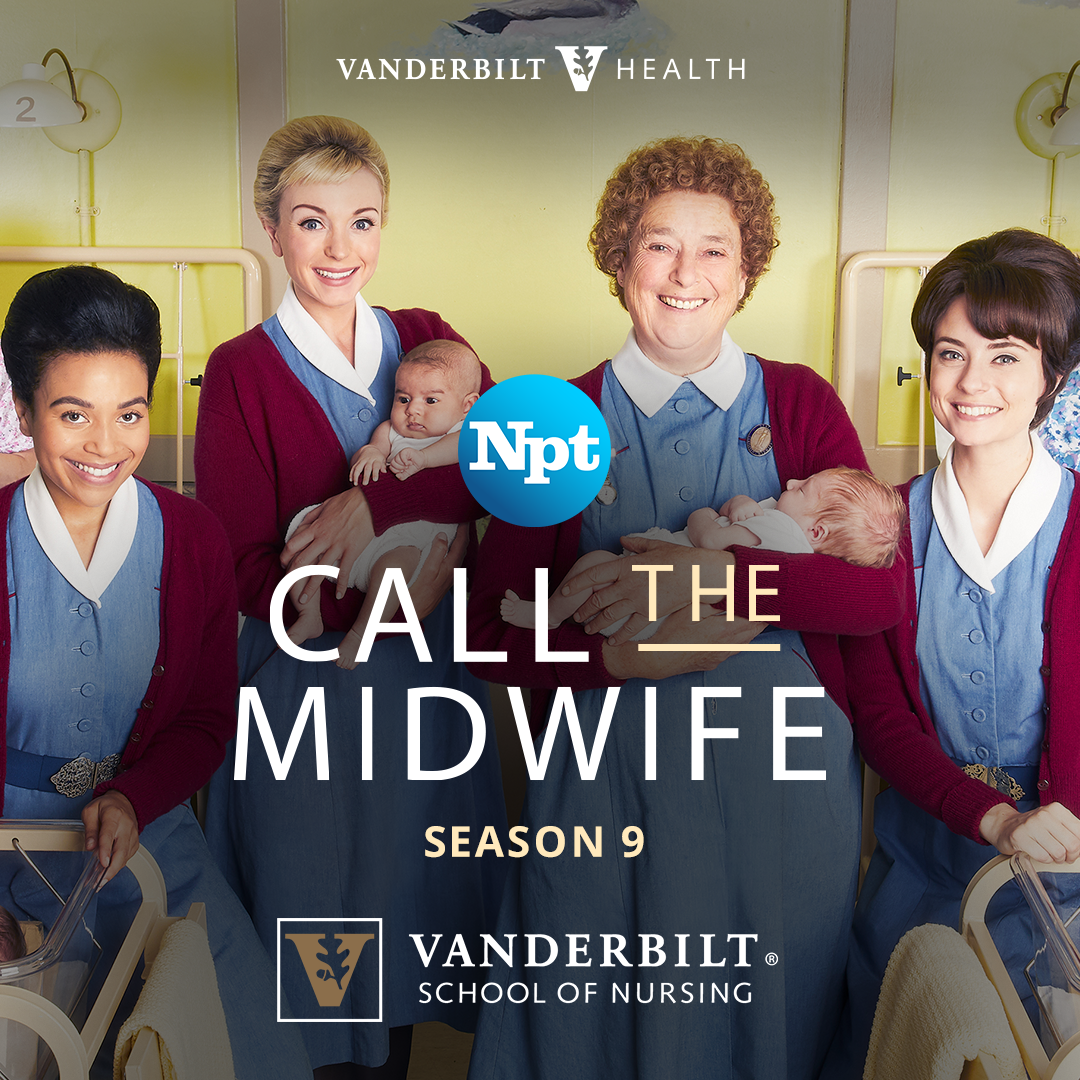
This Call the Midwife season finale is a barn burner! Every plot line crackles with drama: two single women pregnant by the same man; an illegal abortionist dying in prison; a young doctor stealing narcotics from his practice to sustain his secret addiction. This could be a modern soap opera, packed with tales of sin and sex, drugs and disease. Instead, it is 1965 in Poplar, and the drama swirls around the sweet, solid nuns and midwives of Nonnatus House. Here, every story is sad and tender rather than sordid or titillating. As their colleagues, patients and family members are rocked by disease, regret and heartbreak, the midwives offer support, strength and peace.
The story line that strikes me as the most important is actually the most mundane: an increase in the rent for Nonnatus House and a concurrent decrease in district funding. These financial hits put the whole practice in jeopardy, despite the essential role we know it plays in the community. For a minute, Sister Julienne’s tears had me in despair. But the midwives draw on their strength: their years of relational care with the women of London’s East End.
Sister Monica Joan produces a treasure box of notes and cards testifying to the impact the midwives have had on the health and happiness of local families. The patient records tell their own succinct stories of safe birth care. And then a joyful climactic surprise: the midwives exit Nonnatus House to find the streets lined with cheering families, there to lend support in the fight. Nurse Franklin gives a rousing speech reminding the district officials of the individual lives touched by the midwives, name by name, and funding is restored – for another year at least.
Midwifery care is relational care. We care for low-risk women and high-risk women, at home and in hospital, with no interventions and with every available intervention, in pregnancy and with contraception, from adolescence through menopause. The common element, what makes our care distinctive, is the egalitarian relationship between a woman and her midwife. The American College of Nurse-Midwives describes the relationship as a “continuous and compassionate partnership” that “acknowledges a person’s life experiences and knowledge, includes individualized methods of care and healing guided by the best evidence available, and involves therapeutic use of human presence and skillful communication.”
Sociologist Barbara Katz Rothman calls it the craftsmanship of midwifery: “Rather than settling for an industrialised hospital birth, midwifery offers an alternative, a hand-crafted, individually made and personally catered birth. Midwives can do that because they have the skills, the craftsmanship, to individualise the birth to the woman, to meet her physical, psychological and familial needs.”
Every episode of Call the Midwife showcases this unique model of care; even in this episode we see Nurse Crane offer a patient a compassionate alternative to the “sausage factory” of the hospital clinic. The Nonnatus House financial crisis allows us to see all those relationships en masse: a beautiful body of work, a legacy, a dark sky full of stars.

Kate Virostko, MSN, CNM, is a member of the Vanderbilt Nurse-Midwives & Primary Care for Women at Melrose, the clinical practice of the Vanderbilt University School of Nursing.
